A Consumer Guide to the Trailing Edge: March, 2013
Recycled Goods (#106)
by Tom Hull
After last month's exploration of avant-jazz pianist Marilyn Crispell, I had more records left over by closely related artists like Barry Guy and Evan Parker, but soon gravity moved me into Irčne Schweizer -- one of the few ways to search for old jazz on Rhapsody has been to glom onto one of the few labels represented there and poke around in that label's catalog: the Swiss label Intakt is a fine case in point, with a few records by Crispell and Guy and a lot more by Schweizer. Until this run, my main reference for Schweizer has been the marvelous 2-CD Portrait from 2006, which surveys 1984-2004 including pieces from many of the albums below. That's still the best single spot to land on, but the drummer duos are often extraordinary.
The Miles Davis set is new and important. The Jerry Lee Lewis was on my wish list from last year, and all the more attractive for including the legendary Hamburg date -- on my wish list practically forever. Even later his live albums often blow me away, such as Live From Austin TX (1983 [2007], New West) and, even better, Rockin' My Life Away (1989, Tomato). I wound up holding back most of the non-jazz I had written up (well, only two records), but figured another pianist would fit in fine here.
Old avant-jazz exploration could go on indefinitely, the only problem being that it's hard to find and rather limited on Rhapsody. On the other hand, maybe I'll try filling in other gaps next month.
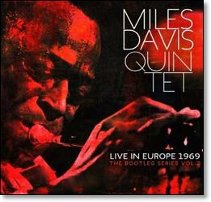 |
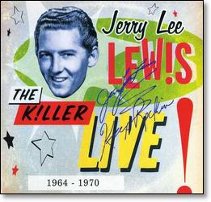 |
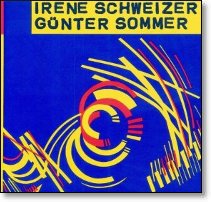 |
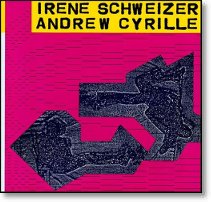 |
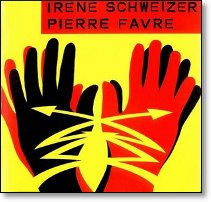 |
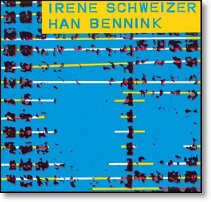 |
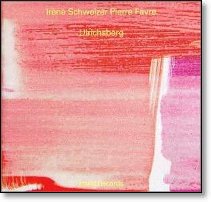 |
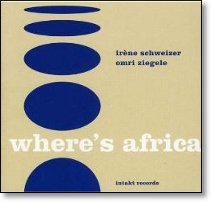 |
Art Ensemble of Chicago: A Jackson in Your House/Message to Our Folks/Reese and the Smooth Ones (1969 [2012], Snapper, 2CD): Lester Bowie on trumpet, Joseph Jarman and Roscoe Mitchell on reeds, Malachi Favors on bass, everyone doubling up on all manner of percussion, the purveyors of Great Black Music spread themselves thin in 1969 by laying it on thick: this useful reissue collects three of more than a dozen albums they released in that watershed year. The preach and jive hasn't worn well, and the doodling can strain your patience. But there are times, like the ultra-bent funk on "Rock Out," where they astonish -- and there's something to be said for the fertile history. B+(***) [R]
As separate albums:
- A Jackson for Your House: Memorable title, music less so. B+(**)
- Message to Our Folks: From "Old Time Religion" to "Rock Out." B+(***)
- Reese and the Smooth Ones: Smooth, my ass, but long suits them. B+(***)
Miles Davis: Live in Europe 1969 [The Bootleg Series Vol. 2] (1969 [2013], Columbia/Legacy, 3CD+DVD): No one in jazz reinvented himself more times than Davis, who followed up his first classic quintet by delving into modal jazz and Gil Evans soundscapes, then assembled a second classic quintet, and followed that with his singular take on plugged in fusion. These live sets represent the first step after the second quintet, with Chick Corea, Dave Holland, and Jack DeJohnette replacing the Hancock-Clarke-Williams rhythm section, but despite Corea's electric piano the look is avant, not fusion. This was a time when Corea and Holland were developing Circle with Anthony Braxton, a year before Holland's Conference of the Birds. Interestingly enough, the musician farthest out here is Wayne Shorter, who has never seemed more intent on channeling Ayler and Coltrane, although Davis takes a few fliers too. I can't say that it really works: I often find myself irritated by one line, then blown away by the next, a dynamic that lessens one's enjoyment even while posing an interesting historical puzzle. A-
Jerry Lee Lewis: The Killer Live (1964-1970) (1964-70 [2012], Hip-O Select, 3CD): Only three top-ten pop hits, all 1956-57, followed by a whole lotta controversy, which he persevered by putting on the hottest rock and roll revival shows in the early 1960s -- he was as likely to play Chuck Berry, Elvis Presley, Little Richard, and a souped up Ray Charles as his own hits. Then in 1968 he turned to country for a change of pace, his hits running 1968-71 -- "Another Time, Another Place" to "Chantilly Lace" -- but even decades later he never lost his knack for turning on the gas. He cut four live albums 1964-70 and they're collected here with a few extras. The classic, of course, is the first Hamburg set, with more of his Sun hits, played louder and faster than ever. Later that year, in Birmingham, he slipped his mischievous ad-libs into Charlie Rich's "Who Will the Next Fool Be," and he trended more country after that, sometimes following Ray Charles, sometimes blazing his own path, and laughing more along the way. And so what if he landed in Las Vegas? A- [R]
As separate albums:
- Live at the Star Club, Hamburg (1964, Phillips): In the old Beatles hangout, one of the hottest sets ever. A
- The Greatest Live Show on Earth (1964, Smash): Back in the USA, in Birmingham, AL, working in a bit of country. A-
- By Request: More of the Greatest Live Show on Earth (1966, Smash): Live in Fort Worth, TX, slowing down a bit, and talking more. B+(**)
- Live at the International, Las Vegas (1970, Mercury): Not as good at picking country tunes as rockers, but Linda Gail helps out. B+(***)
Briefly Noted
Art Ensemble of Chicago: Tutankhamun (1969, Black Lion): The usual bits and pieces -- pungent trumpet, slippery reeds, confusing verbal hoodoo, everyone winging it on percussion. B+(*) [R]
Borah Bergman with Andrew Cyrille: The Human Factor (1992 [1993], Soul Note): An underrated avant-garde pianist who passed last year (1933-2012) with a couple dozen albums from 1975 on, mostly intimate affairs like this duo with drummer Cyrille; his high speed flights can be exuberant and explosive (and sometimes melodramatic), his rarer balladry touching and precise ("When Autumn Comes" is a good example here). B+(***) [R]
Borah Bergman with Hamid Drake: Reflections on Ornette Coleman and the Stone House (1995, Soul Note): Piano-drums duo, playing six Ornette Coleman songs (with a Bergman co-credit on "Stone House"); the sharp angles undo the slipperiness of the originals, doubling down on a previously unnoticed percussiveness. B+(*) [R]
Marion Brown: Porto Novo (1967-70 [1994], Black Lion): Alto saxophonist, a fierce avant-gardist working in a trio with Maarten van Regteren Altena on bass and Han Bennink on drums, the 11:55 title cut a highlight, especially for the drummer; CD adds two later (1970) duo tracks with trumpeter Leo Smith, both filling in on percussion so the horns rarely interact. B+(***) [R]
Barry Guy: Fizzles (1991 [1993], Maya): Solo bass, inevitable for an avant-gardist of his stature but a while coming as Guy has mostly focused on large groups; a broad range of sounds, but little envelope pushing, focusing on moderate arco melodies, pushing his unique musicality. B+(**) [R]
Barry Guy and the Now Orchestra: Study/Witch Gong Game 11/10 (1994, Maya): Away from his London Jazz Composers Orchestra, the avant-bassist finds a similarly disposed monster of an orchestra in Vancouver, one which rarely records except to honor its guest stars; two pieces here, both heat up, especially the long closer, and that's when the stars break loose. B+(*) [R]
Barry Guy: Symmetries (2001 [2002], Maya): A second bass solo exercise, including "Seven Fizzles" reworking themes from his first album; the music is thin and scratchy, the fascination the broad array of sounds he coaxes from the big fiddle. B+(***) [R]
Charlie Haden: The Golden Number (1976 [1977], A&M): Bassist, came up in Ornette Coleman's quartet and went on to a remarkable career, with this set of duets relatively early; four pieces, one each with Don Cherry (trumpet, flute), Archie Shepp (tenor sax), Hampton Hawes (piano), and Coleman (trumpet, played slow); Shepp and Hawes make the strongest impression, while his former bandmates draw out the bassist. B+(***) [R]
Keith Jarrett: Hymns/Spheres (1976 [2013], ECM, 2CD): An exercise in baroque pipe organ played at Benedictine Abbey in Ottobeuren, Germany, the hymns sound appropriately (even stuffily) churchy, the 9-movement "Spheres" more new agey and more appealing for that -- you weren't expecting some B3 funk moves, were you? B+(*)
Evan Parker/Barry Guy/Paul Lytton and Marilyn Crispell: After Appleby (1999 [2000], Leo, 2CD): The English avant-garde's long-running sax trio plus an explosive American pianist who works more frequently with bassist Guy; this runs long, and Parker's inside out technique limits the sonic range but the group makes a lot out of it. B+(***) [R]
Irčne Schweizer/Louis Moholo (1986 [1996], Intakt): Swiss avant-pianist, one of a handful of duo albums with drummers, this one a expat from South Africa, who brings along his baggage; cf. the lovely township jive of "Angel," sandwiched between "Free Mandela" and "Exile (Song for Johnny Dyani/Africa[na]/We Will Win the War" -- some exceptional piano in the latter. B+(**) [R]
Irčne Schweizer/Günter Sommer (1987 [1996], Intakt): Piano-drums duets, the drummer also from Switzerland, their relationship and rapport deep, he springs her loose for some of her most dynamic playing, lightning runs and thundering rolls. A- [R]
Irčne Schweizer/Andrew Cyrille (1988 [1996], Intakt): Piano-drums again, the drummer born in New York of a Haitian mother, went on to a long stretch playing with Cecil Taylor; Schweizer gets compared to Taylor a lot as few other pianists are as surprising or as volatile, but unlike Taylor she never loses the rhythm completely, with or without a drummer, and Cyrille is one of the best. A- [R]
Irčne Schweizer/Pierre Favre (1990 [1992], Intakt): Piano-drums duets, again, with another Swiss drummer; again, some of the most remarkable piano of the era, an irresistible rhythmic force; perhaps the best of the drum-duets series . . . A [R]
Irčne Schweizer/Han Bennink (1995 [1996], Intakt): . . . Or maybe this one is: more piano-drums, this time with the great Dutch percussionist, as lively as ever, able to work in a swing feel even in anarchic time; again, the pianist is outstanding. A [R]
Irčne Schweizer: Chicago Piano Solo (2000 [2001], Intakt): Solo piano, almost as many of those as she has duo albums, and hard to pick between them -- in fact, I'm not; just noting that this is typically vigorous and occasionally ingenious, but I don't quite feel the drive, or the challenge, that her best drummers bring. B+(***) [R]
Irčne Schweizer/Pierre Favre: Ulrichsberg (2003 [2004], Intakt): Piano-drums duet, second round, live -- like most of the others, although the crowd is more intrusive here; Favre remains a superb partner, and the piano just keeps on coming. A- [R]
Irčne Schweizer/Omri Ziegele: Where's Africa (2004 [2005], Intakt): More duets, but alto sax this time, and surprisingly mainstream; don't have song credits, but some names ("Monk's Mood," "Speak Low") and more melodies are familiar -- Ziegele even sings a couple ("Isn't It Romantic") -- nothing explosive from the pianist, and all the more charming for that. A- [R]
Legend: B+ records are divided into three levels, where more * is better. [R] indicates record was reviewed using a stream from Rhapsody ([X] is some other identified stream source; otherwise assume a CD). The biggest caveat there is that the packaging and documentation hasn't been inspected or considered, and documentation is especially important for reissues. But also my exposure to streamed records is briefer and more limited, so I'm more prone to snap judgments -- although that's always a risk.
For this column and the previous 105, see the archive. Total records reviewed: 3604 (3168 + 436).
Notes
Copyright © 2012 Tom Hull.